The Biological Basis of Human Behavior accomplishes what numerous introductory books have failed to do: present an evolutionary explanation of why it is we do what we do. This comprehensive book brings together a diverse number of traditionally separate disciplines including paleoanthropology, psychology, and sociology in its attempt to understand human traits. Rich in controversial topics, this text integrates subjects such as paleontology, speech, the structure of the brain, Eve, and the rather odd way in which humans reproduce. Written as a narrative, this excellent learning tool relates modern behavior to the past environments, stresses, and challenges still evident in the modern human world. For anyone interested in the biological bases of human behavior; psychology; or anthropology.
Biological Bases of Human Behavior, The 1st Edition
KSh 7,420.00
The Biological Basis of Human Behavior accomplishes what numerous introductory books have failed to do: present an evolutionary explanation of why it is we do what we do. This comprehensive book brings together a diverse number of traditionally separate disciplines including paleoanthropology, psychology, and sociology in its attempt to understand human traits. Rich in controversial topics, this text integrates subjects such as paleontology, speech, the structure of the brain, Eve, and the rather odd way in which humans reproduce. Written as a narrative, this excellent learning tool relates modern behavior to the past environments, stresses, and challenges still evident in the modern human world. For anyone interested in the biological bases of human behavior; psychology; or anthropology.
1 in stock
Related products
-
Guidelines for drinking-water quality, 4th edition, incorporating the 1st addendum
The fourth edition of the World Health Organization’s (WHO) Guidelines for drinking-water quality (GDWQ) builds on over 50 years of guidance by WHO on drinking-water quality, which has formed an authoritative basis for the setting of national regulations and standards for water safety in support of public health.
It is the product of significant revisions to clarify and elaborate on ways of implementing its recommendations of contextual hazard identification and risk management, through the establishment of health-based targets, catchment-to-consumer water safety plans and independent surveillance.
This first addendum updates the fourth edition. Updates reflect new evidence and further, provides additional explanations to support better understanding and application of the guidance.
-
The Behavioral Health Specialist in Primary Care
KSh 14,014.00Patients with chronic conditions often need psychosocial support and brief counseling to help them make the lifestyle and behavioral changes required to prevent disease complications. This innovative text, with contributions from respected clinicians and researchers in all arenas of behavioral health, provides comprehensive training for all health professionalsóincluding those in medicine, nursing, social work, mental health, and clinical and health psychologyówho desire targeted evidence-based training in behavioral health skills. Rich case examples drawn from typical patient presentations demonstrate the relationship between physical and psychological health and the complexity of behavioral change in chronic illness.
This text is a timely, relevant, and practical resource for all members of the primary care team. It prepares team members to work in the model of patient-centered integrated care in accordance with the recommendations of the Affordable Care Act (ACA) and the National Committee for Quality Assurance (NCQA) medical home standards for identifying patient needs and providing coordinated and comprehensive patient care. The book focuses on knowledge and skills needed for working with the most common chronic conditions such as diabetes, obesity, chronic pain, cardiovascular conditions, sleep disorders, geriatric conditions, cancer-related conditions, and substance abuse. It includes chapters on epidemiological trends in chronic illness and systems medicine. Theories of health behavior and behavioral change and evidence-based interventions provide a foundation for skill development, followed by detailed coverage of the requirements for behavioral management of specific chronic conditions. Sample referrals and consultation notes provide concrete examples of how the behavioral health specialist might respond to a referral.
KEY FEATURES:
- Provides comprehensive graduate-level training for the role of Behavioral Health Specialist
- Describes the health promotion and counseling skills needed to function as part of an integrated health team
- Focuses on proficiencies needed for working with common chronic conditions
- Addresses the psychosocial components of primary care disorders
- Includes case examples demonstrating the relationship between physical and psychological health and the complexity of behavioral change in chronic illness
-
Food Safety and Inspection An Introduction
KSh 7,000.00The process of food inspection relies on an inspector’s understanding of the intrinsic hazards associated with individual foods. Whereas spoilage can usually be determined through a simple organoleptic assessment, the judgment of whether a food is fit for human consumption requires an evaluation of health hazards, many of which may not be apparent through physical assessment. Instead the inspector must analyse and integrate scientific and handling information to evaluate the potential health risk. Adulteration of foods is also becoming an increasing problem, and the complexity of the food supply chain requires an understanding of risk points to allow targeted inspection and assessment.
Food Safety and Inspection: An Introduction focuses on food categories and describes common hazards associated with each, using published peer-reviewed research to explain and evaluate the health risk. It is a practical textbook designed to support the role of food inspection in a modern food industry. There are seven chapters looking at specific aspects of food safety, including a chapter on fraud and adulteration.
This book summarises relevant published research to provide a scientific context for specific food safety issues, and is an essential read for anyone interested in becoming a food inspector.
-
Social Work and Mental Health (Transforming Social Work Practice Series)
With 1 in 4 people experiencing a mental health problem in any given year, mental health is a more important part of social work training than ever before, and all successful social workers need to understand the core values, skills and knowledge that underpin excellent practice in a modern mental health system.
Written as an accessible introduction to the complex issues around mental health, this book has become a classic in its field. Law and policy are clearly outlined while the authors give space to important ethical considerations when working with the most vulnerable in society. There are clear links between policy, legislation and real life practice as well as a wealth of learning features.
-
Courage And Confidence
KSh 750.00Norman Vincent Peale’s anthology includes the works of inspired writers, the thoughts of great men, and anecdotes about remarkable people. From The Bible to Shakespeare, Theodore Roosevelt to Helen Keller, George Eliot to Walt Whitman, the result is truly a treasury of courage and confidence. The material in this book is arranged in twelve sections. Each offers a different approach to dealing with concerns such as: how to banish fear; loving and being loved, the art of thankfulness, the power of prayer and how to find happiness. There is something for everyone in the anthology. Like Norman Vincent Peal’s bestseller The Power of Positive Thinking, it will guide you toward peace of mind and the will to live the fullest possible life.
-
Heart Disease: Everything You Need to Know (Your Personal Health)
KSh 900.00Widespread and deadly, heart disease is a grim epidemic. Affecting parents, siblings, friends and co-workers, heart disease is so common that it is impossible to remain untouched by it. Heart disease is responsible for more than 37% of all deaths and is the leading cause of death in people over 65.
In Heart Disease, Dr. Rob Myers shows how to take control of the condition. For example, of the 50 million Americans who suffer from high blood pressure — the leading contributor to heart disease — only 35% know they have it. Yet, high blood pressure is easily detectable and usually controllable.
Heart Disease is a practical health guide that simplifies this disease’s biology and physiology and clearly explains the medial concepts and jargon often used by doctors in diagnosis and treatment.
Using detailed tables, sidebars and diagrams, Heart Disease provides comprehensive, accurate, safe and up-to-date information for patients and their families.
-
-
Understanding Psychology
KSh 9,525.00The overall philosophy of Understanding Psychology is to bring complex psychological concepts to students’ lives. The goal of this program is to make psychology relevant, fun, interesting, and even exciting, making it approachable. Understanding Psychology is an interactive book with:
- hands-on activities
- case studies
- current issues and readings about the field of psychology
The Understanding Psychology program was designed to help students understand how this subject is part of their day-to-day lives. Research in assessment and APA literature was reviewed. The program’s authors, academic consultants, and experienced Social Studies educators reviewed the assessment plan for Understanding Psychology. Understanding Psychology includes a variety of assessment instruments to support instruction. The test booklet provides three-part chapter tests: Matching, Multiple Choice, and Essay”

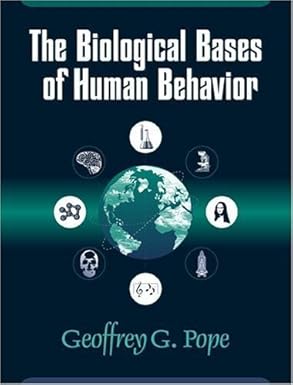
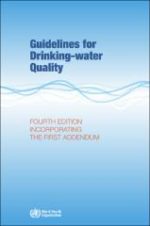
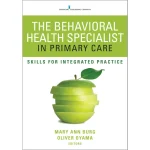

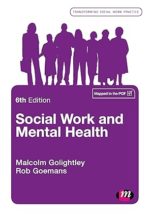

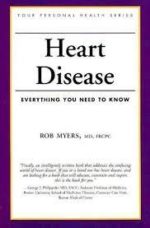
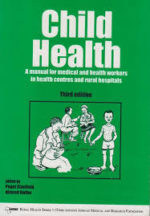

Be the first to review “Biological Bases of Human Behavior, The 1st Edition”